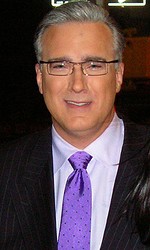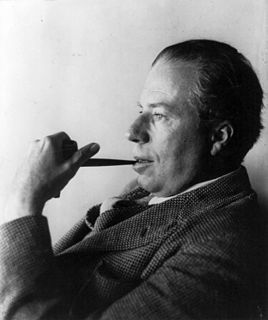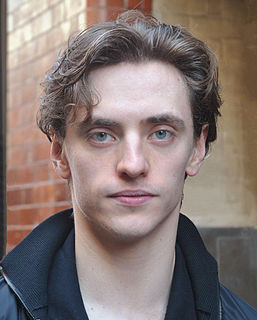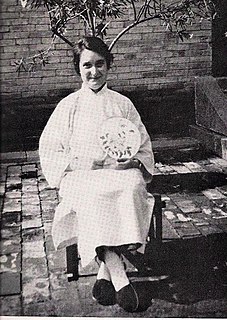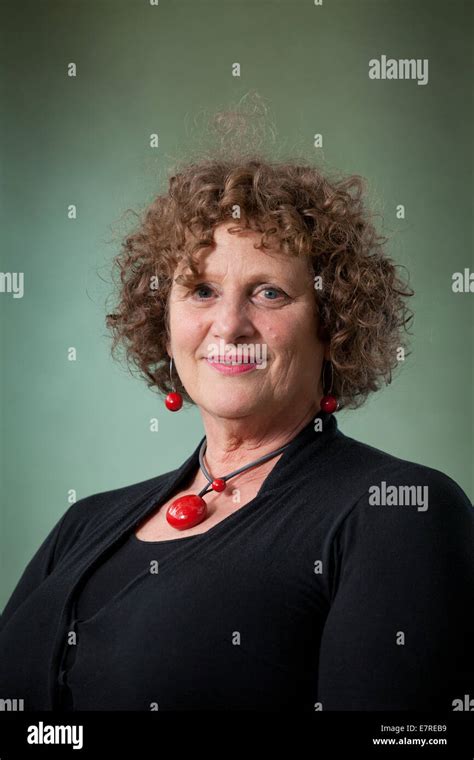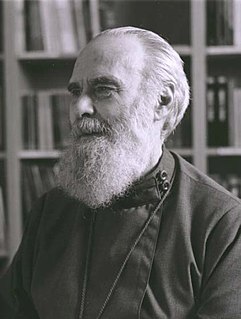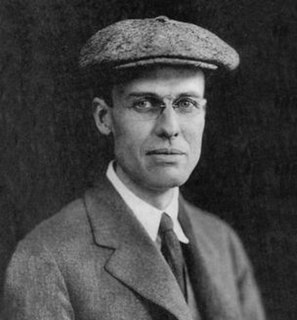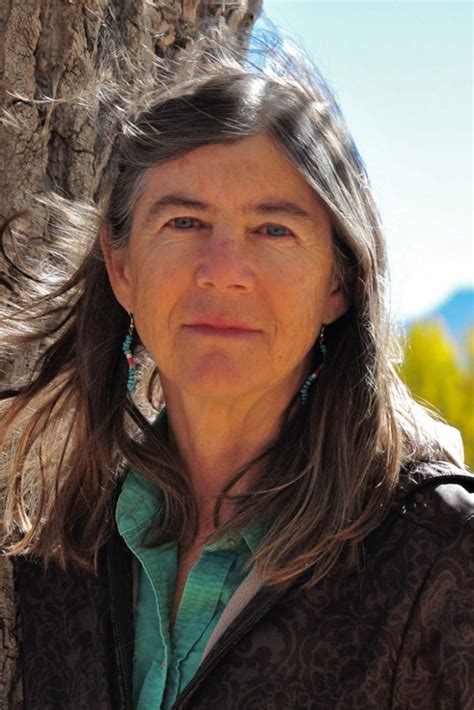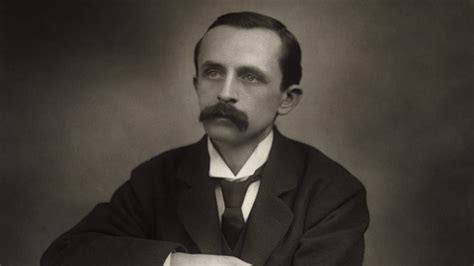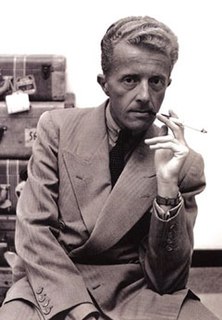Top 1200 Perhaps Quotes & Sayings - Page 5
Explore popular Perhaps quotes.
Last updated on November 25, 2024.
Perhaps no man is an island, but every man and woman is a nation unto herself. I actually had to look up the definition of "nation"; this is how awkward my relation is to this concept. And it is defined as, "a large aggregate of people united by common descent, history, culture, or language, inhabiting a particular country or territory." Perhaps if you replace "descent" with "dissent" the definition becomes more meaningful.
If dislocation is a permanent state, I want to try and explore the possibility of temporary impermanence. If dislocation is a tatty dress from the thrift store, perhaps the solution is not to cast it aside. If dislocation is a tatty dress, perhaps the only solution is to mend it, scent it and wear it until everything about it signifies newness, something close to the perpetual promise of a fresh start.
Perhaps you are thinking: 'But a tank costs several million dollars, not including floor mats. I don't have that kind of money.' Don't be silly. You're a consumer, right? You have credit cards, right? Perhaps you are thinking: 'Yes, but how am I going to pay the credit-card company?' Don't be silly. You have a tank, right?
Odysseus inclines his head. "True. But fame is a strange thing. Some men gain glory after they die, while others fade. What is admired in one generation is abhorred in another." He spread his broad hands. "We cannot say who will survive the holocaust of memory. Who knows?" He smiles. "Perhaps one day even I will be famous. Perhaps more famous than you.
Doubtless, we are as slow to conceive of Paradise as of Heaven, of a perfect natural as of a perfect spiritual world. We see how past ages have loitered and erred. "Is perhaps our generation free from irrationality and error? Have we perhaps reached now the summit of human wisdom, and need no more to look out for mental or physical improvement?" Undoubtedly, we are never so visionary as to be prepared for what the next hour may bring forth.
God knows; I won't be an Oxford don anyhow. I'll be a poet, a writer, a dramatist. Somehow or other I'll be famous, and if not famous, I'll be notorious. Or perhaps I'll lead the life of pleasure for a time and then—who knows?—rest and do nothing. What does Plato say is the highest end that man can attain here below? To sit down and contemplate the good. Perhaps that will be the end of me too.
Perhaps it is not-being that is the true state, and all our dream of life is inexistent; but, if so, we feel that these phrases of music, these conceptions which exist in relation to our dream, must be nothing either. We shall perish, but we have as hostages these divine captives who will follow and share our fate. And death in their company is somehow less bitter, less inglorious, perhaps even less probable.
I've noticed the Fair Folk often say 'perhaps' when there is a truth they want to hide," Clary said. "It keeps you from having to give a straight answer." "Perhaps so," said the Queen with an amused smile. "'Mayhap' is a good word too," Alec suggested. "Also 'perchance,'" Izzy said. "I see nothing wrong with 'maybe'," said Simon. "A little modern, but the gist of the idea comes across.
In effect, you're saying that if you knew how you oughtt to live, then the flaw is man could be controlled. If you knew how you ought to live, you wouldn't be forever screwing up the world. perhaps in fact the two things are actually one thing. Perhaps the flaw in man is exactly this: that he doesn't know how he ought to live.
Apparently, the people in the [George W.] Bush administration who wanted to confront me on this could not spell my name correctly. They wanted to send a series of emails thinking that perhaps MSNBC was perhaps favorable to the Bush administration. They thought that they could send me a series of questions or talking points to disprove Joe Wilson with.
Perhaps in time, Ella, the words we have lost will fade, and we will all stop summoning them by habit, only to stamp them out like unwanted toadstools when they appear. Perhaps they will eventually disappear altogether, and the accompanying halts and stammers as well: those troublesome, maddening pauses that at present invade and punctuate through caesura all manner of discourse. Trying so desperately we all are, to be ever so careful.
Truth and Beauty (perhaps Keats was wrong in identifying them: perhaps they have the relation of Wit and Humour, or Rain and Rainbow) are of interest only to hungry people. There are several kinds of hunger. If Socrates, Spinoza, and Santayana had had free access to a midnight icebox we would never have heard of them. Shall I be ashamed of my little mewing truths?... I ask to be forgiven: they are such tiny ones.
No woman will ever satisfy me. I know that now, and I would never try to deny it. But this is actually okay, because I will never satisfy a woman, either. Should I be writing such thoughts? Perhaps not. Perhaps it’s a bad idea. I can definitely foresee a scenario where that first paragraph could come back to haunt me, especially if I somehow became marginally famous.
Some of this book—perhaps too much—has been about how I learned to do it. Much of it has been about how you can do it better. The rest of it—and perhaps the best of it—is a permission slip: you can, you should, and if you're brave enough to start, you will. Writing is magic, as much the water of life as any other creative art. The water is free. So drink. Drink and be filled up.
A poem, being an instance of language, hence essentially dialogue, may be a letter in a bottle thrown out to the sea with the-surely not always strong-hope that it may somehow wash up somewhere, perhaps on the shoreline of the heart. In this way, too, poems are en route: they are headed towards. Toward what? Toward something open, inhabitable, an approachable you, perhaps, an approachable reality. Such realities are, I think, at stake in a poem.
You have had many sadnesses, large ones, which passed. ... But please, ask yourself whether these large sadnesses haven't rather gone right through you [that is, passed through you]. Perhaps many things inside you have been transformed; perhaps somewhere, someplace deep inside your being, you have undergone important changes while you were sad.
The words 'maybe' and 'perhaps' are literally the same - the flavor is the same, the educational level is the same. But you just know when to use maybe and when to use perhaps. I think it's because of this: You get to know the tastes or musical tastes of words themselves, and this informs your choice, whether you use them or not.
For those who pass it without entering, the city is one thing; it is another for those who are trapped by it and never leave. There is the city where you arrive for the first time; and there is another city which you leave never to return. Each deserves a different name; perhaps I have already spoken of Irene under other names; perhaps I have spoken only of Irene.
There is a lake that one day refused to flow away and threw up a dam at the place where it had before flowed out and since then this lake has always risen higher and higher. Perhaps the very act of renunciation provides us with the strength to bear it ; perhaps man will rise ever higher and higher when he no longer flows out into a God.
He had the face of one who walks in his sleep, and for a wild moment the idea came to me that perhaps he was not normal, not altogether sane. There were people who had trances, I had surely heard of them, and they followed strange laws of which we could know nothing, they obeyed the tangled orders of their own sub-conscious minds. Perhaps he was one of them, and here we were within six feet of death.
People are going to think what they want to think. I let them. You can’t control perception. It’s a losing game so I don’t play. I let them lose; lose themselves in their own fantasies of what they want me to be. A rebel, an angel, a romantic, a heart breaker, a boy, a man. Perhaps I am all of those things. Perhaps I’m none. But what I am is for me to find out, not to be dictated to me. It’s for me to know.
Unless we look at a person and see the beauty there is in this person, we can contribute nothing to him. One does not help a person by discerning what is wrong, what is ugly, what is distorted. Christ looked at everyone he met, at the prostitute, at the thief, and saw the beauty hidden there. Perhaps it was distorted, perhaps damaged, but it was beauty none the less, and what he did was to call out this beauty.
God is dead. Let us not understand by this that he does not exist or even that he no longer exists. He is dead. He spoke to us and is silent. We no longer have anything but his cadaver. Perhaps he
slipped out of the world, somewhere else like the soul of a dead man. Perhaps he was only a dream...God is dead.
Unless you stop him. Perhaps next we meet." "You'll be just as annoying?" I guessed. He fixed my with those warm brown eyes. "Or perhaps you could bring me up to speed on those modern courtship rituals." I sat there stunned until he gave me a glimpse of a smile-just enough to let me know he was teasing. Then he disappeared. "Oh, very funny!" I yelled.
Everyone goes to the 'Grands-Boulevards' (in Paris, ed.) and let himself loose... ...Do not picture these in costume, they are not for the most part... ...perhaps a clown with a big nose, or two girls with bare necks and short skirts... ...the parade of the queens of the halls (markets) is also one of the events... ...Some are pretty but look awkward in their silk dresses and crowns, particularly as the broad sun displays their defects - perhaps a neck too thin or a painted face which shows ghastley white in the sunlight.
Plainly it isn't an exact science, despite it being a complex interaction of micro-decisions and corresponding thought; perhaps it doesn't always work and we pass by some potential soulmates like the proverbial ships in the night, never quite connecting. Then again, perhaps the system is tenacious and continues to run like a computer program on infinite loop, so that if at first you don't meet, you are drawn back together for another try.
If you have to find devices to coax yourself to stay focused on writing, perhaps you should not be writing what you're writing. And if this lack of motivation is a constant problem, perhaps writing is not your forte. I mean, what is the problem? If writing bores you, that is pretty fatal. If that is not the case, but you find that it is hard going and it just doesn't flow, well, what did you expect? It is work; art is work.
I believe that if we could see the chapters that are missing from the book [The Autobiography of Malcolm X], we would gain an understanding as to why perhaps - perhaps - the F.B.I., the C.I.A., the New York Police Department and others in law enforcement greatly feared what Malcolm X was about, because he was trying to build a broad - an unprecedented black coalition across the lines of black nationalism and integration. And in way, it presages 30 years ahead of time, the Million Man March.
Perhaps of all our untamed quadrupeds, the fox has obtained the widest and most familiar reputation.... His recent tracks still give variety to a winter's walk. I tread in the steps of the fox that has gone before me by some hours, or which perhaps I have started, with such a tip-toe of expectation as if I were on the trail of the Spirit itself which resides in the wood, and expected soon to catch it in its lair.
A poem, as a manifestation of language and thus essentially dialogue, can be a message in a bottle, sent out in the –not always greatly hopeful-belief that somewhere and sometime it could wash up on land, on heartland perhaps. Poems in this sense too are under way: they are making toward something. Toward what? Toward something standing open, occupiable, perhaps toward an addressable Thou, toward an addressable reality.
We may spark something or set something in motion in another person's life by something we've done. Perhaps in a car accident we injure someone. Perhaps as a manager, we fire someone. There are a lot of things that could precipitate something negative in another person's life. But does that make us responsible for everything that follows from it? Is there a statute of limitations?
Very often, I confess, the teller of dreams bores me. His dream could perhaps interest me if it were frankly worked on. But to hear a glorious tale of his insanity! I have not yet clarified, psychoanalytically, this boredom during the recital of other people's dreams. Perhaps I have retained the stiffness of a rationalist. I do not follow the tale of justified incoherence docilely. I always suspect that part of the stupidities being recounted are invented.
You have been given questions to which you cannot be given answers. You will have to live them out - perhaps a little at a time.' And how long is that going to take?' I don't know. As long as you live, perhaps.' That could be a long time.' I will tell you a further mystery,' he said. 'It may take longer.
Only within the 20th Century has biological thought been focused on ecology, or the relation of the living creature to its environment. Awareness of ecological relationships is - or should be - the basis of modern conservation programs, for it is useless to attempt to preserve a living species unless the kind of land or water it requires is also preserved. So delicately interwoven are the relationships that when we disturb one thread of the community fabric we alter it all - perhaps almost imperceptibly, perhaps so drastically that destruction follows.
So, as we have our tea, I propose not only to operate on your heart so as to change your will, but also on your eyes so as to change your outlook. But wait a minute. No, I do not propose to operate at all. I myself cannot do anything of the sort. I am just mildly suggesting that you are perhaps dead, and perhaps blind, leaving you to think the matter over for yourself. If an operation is to be performed it must be performed by God Himself.
My poems are certainly in the lyric tradition, but perhaps a reader can tell me more precisely who I am as a poet. How can I be so old and not know? I have always been deeply grateful for the urge to write, the desire to create, that's certain. Writing has always been the way I make sense of life. Perhaps my poems define me, rather than the other way around. They do constantly surprise me.
There's always the danger that there are so damn many things that a playwright can examine in this society of ours - things that have less to do with his artistic work than have to do with the critical and aesthetic environment - that perhaps he does have to worry about whether or not he is writing too fast. But then also, perhaps he should worry about getting as many plays on as possible before the inevitable ax falls.
There are no happy endings... There are no endings, happy or otherwise. We all have our own stories which are just part of the one Story that binds both this world and Faerie. Sometimes we step into each others stories - perhaps just for a few minutes, perhaps for years - and then we step out of them again. But all the while, the Story just goes on.
One of the reasons why this country undertook military action in Iraq was that there are quite a few problems here, and perhaps attention needed to be deflected from those problems. It sometimes seems that the U.S. economy works successfully only if it gets a stimulus from the defense industry. So perhaps in addition to showing the power and the might of the United States internationally, another reason was to help the defense industry and to help the U.S. economy recover.
In my opinion, if most urban meat-eaters were to visit an industrial broiler house, to se how the birds are raised, and could see the birds being "harvested" and then being "processed" in a poultry processing plant, they would not be impressed and some, perhaps many of them would swear off eating chicken and perhaps all meat.
We have no reason to mistrust our world, for it is not against us. Has it terrors, they are our terrors; has it abysses, those abysses belong to us; are dangers at hand, we must try to love them.... Perhaps all the dragons of our lives are princesses who are only waiting to see us once beautiful and brave. Perhaps everything terrible is in its deepest being something helpless that wants help from us.
...Generally people don't recomend this type of book at all. It is far too interesting. Perhaps you have had other books recomended to you. Perhaps, even, you have been given books by friends, parents, teachers, then told that these books are the type you have to read. Those books are invariably described as "important"- which in my experience, pretty much means that they're boring. (words like meaningful and thoughtful are other good clues.)
Perhaps, it is just as well to be rash and foolish for a while. If writers were too wise, perhaps no books would be written at all. It might be better to ask yourself "Why?" afterwards than before. Anyway, the force from somewhere in Space which commands you to write in the first place, gives you no choice. You take up the pen when you are told, and write what is commanded. There is no agony like bearing an untold story inside you.
Or perhaps is is that time doesn't heal wounds at all, perhaps that is the biggest lie of them all, and instead what happens is that each wound penetrates the body deeper and deeper until one day you find that the sheer geography of your bones - the angle of your hips, the sharpness of your shoulders, as well as the luster of your eyes, the texture of your skin, the openness of your smile - has collapsed under the weight of your griefs.
But perhaps this is all to the good. Perhaps it’s best to live with the possibility that around any corner, at any time, may come the person who reminds you of your own capacity to surprise yourself, to put at risk everything that’s dear to you. Who reminds you of the distances we have to bridge to begin to know anything about one another. Who reminds you that what seems to be—even about yourself—may not be. That like him, you need to be forgiven.
Because we don't know when we will die, we get to think of life as an inexhaustible well. Yet everything happens only a certain number of times, and a very small number really. How many more times will you remember a certain afternoon of your childhood, an afternoon that is so deeply a part of your being that you can't even conceive of your life without it? Perhaps four or five times more, perhaps not even that. How many more times will you watch the full moon rise? Perhaps 20. And yet it all seems limitless.
Perhaps I can also add something about the rural setting of Remember You're a One-Ball! The countryside is a place - in mythological and perhaps in very real terms - of mixed innocence and sin. It is seen by townsfolk as idyllic, lazy, free of urban crime and social problems. But those who grow up in the country can tell stories that often surprise those who grow up in the towns.
Perhaps we have failed as human beings. Perhaps we have embarrassed ourselves to the natural world. We have been rigorous and willful in all the wrong ways. But it doesn't have to be this way. Maybe you don't want to deal with (marching), the permanent marker and poster board. But try something else. Carry someone's groceries. Chat with the custodian in your office building. Donate blood. Live in Rwanda for a year. Write letters to the Department of Buildings. Learn to knit. It is only going to get better from here on out.
It is hard to think of any work of art of which one can say 'this saved the life of one Jew, one Vietnamese, one Cambodian'. Specific books, perhaps; but as far as one can tell, no paintings or sculptures. The difference between us and the artists of the 1920's is that they they thought such a work of art could be made. Perhaps it was a certain naivete that made them think so. But it is certainly our loss that we cannot.
It is our destiny to live with the wrong as well as the right kind of citizens, and to learn from them, the wrong-minded ones, as much or more as from others. If we have not yet succeeded -after how many centuries?- in eliminating from life the elements which plague us perhaps we need to question life more closely. Perhaps our refusal to face reality is the only ill we suffer from, and all the rest but illusion and delusion. (p.26)









